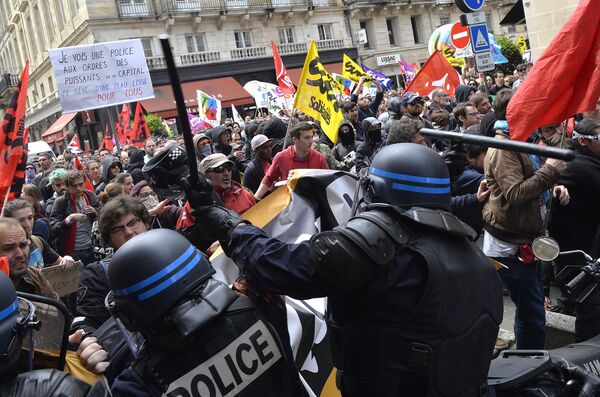France celebrates Bastille Day #14juillet pic.twitter.com/KrtVMo2VmZ
— AFP news agency (@AFP) July 14, 2016
Hollande is himself — 227 years later — facing civil unrest and deep unpopularity over his controversial labor law reforms and for using a part of the constitution to bypass the National Assembly and force through the legislation.
Back in 1789, France — under Louis XVI — was in a serious economic crisis, mainly caused by the cost of intervening in the American Revolution. An argument grew between the nobility/clergy and the commoners — the Second and Third Estates —leading to the storming of the Bastille, where political prisoners were held, the creation of a National Assembly and a written constitution.
L'idée qui m'anime, c'est agir pour que notre pays puisse être maître de son destin et pour la cohésion sociale, nationale et culturelle.
— François Hollande (@fhollande) 14 July 2016
(Tweet: "The idea that drives me is to act for our country, to be the master of destiny — for both national, cultural and social cohesion.")
Revolution
France has been hit with a series of strikes and mass demonstrations since March, bringing chaos to the rail network, the Paris Metro and airlines, as well as road transport, because of industrial action and blockades at fuel refineries and depots.

Principally, the protests are against reforms to the highly codified French labor laws — known as the Code du travail — in order to give employers more flexibility.
The reforms were pushed through by Hollande, who invoked a little used piece of the constitution — article 49.3 — to bypass parliament and implement the reforms.
As Hollande watches the fireworks on Bastille Day — probably his last as president — he may well reflect on his place in history: the person that used the constitution against the masses that created it.




